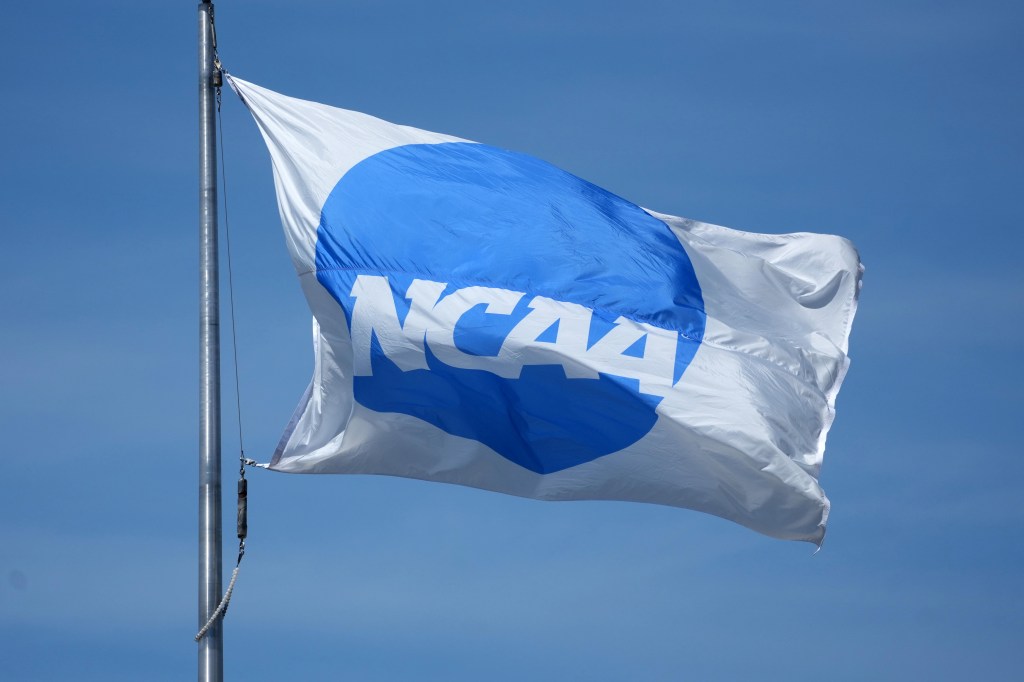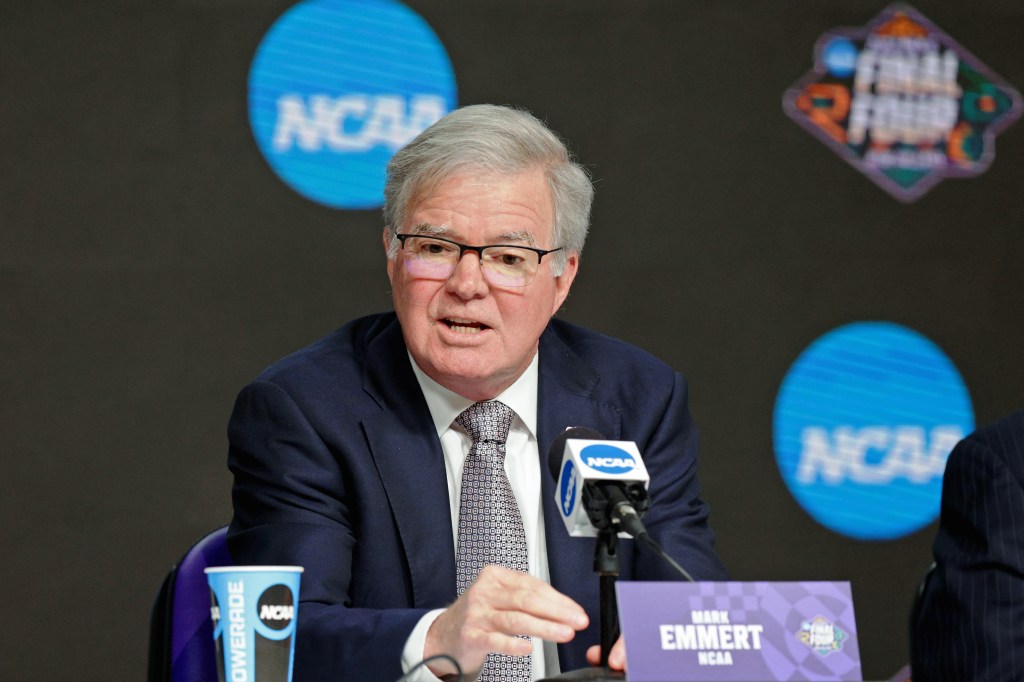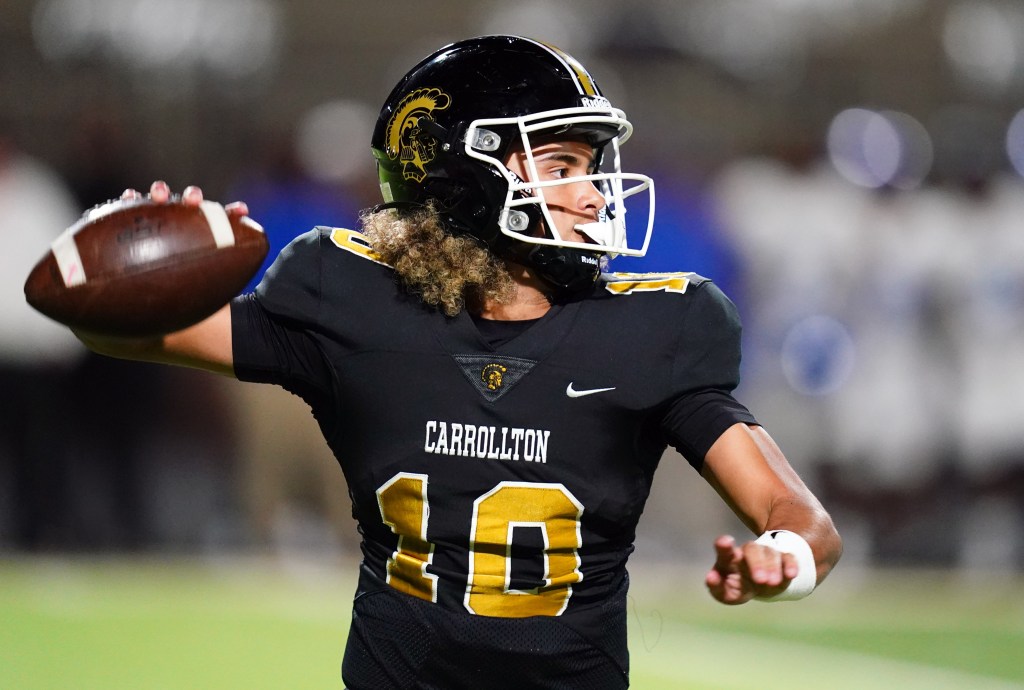NCAA Could Require College Students To Disclose High School NIL Deals
Anwar Stetson

Don’t miss the next big story. Sign up now for our FREE weekly newsletter.
__
The Wild, Wild, West
The NIL (Name, Image, and Likeness) market has grown at a tremendous rate since its introduction in 2021 at the collegiate level. The multi-million dollar industry is also growing at the high school level, allowing students to make money off of their sport in some cases as young as 14 years old.
Multiple media outlets and even politicians have called the current NIL landscape “The Wild West,” as the industry has greatly outpaced regulations. Now, the NCAA is pushing back with a rule that could potentially impact college athletes dating back to the deals they made as high schoolers.
Per the Associated Press, the NCAA could require college students to disclose their high school NIL deals to be eligible to compete in sports at the collegiate level. The ruling could be a stepping stone to further regulations for student-athletes getting paid to play sports.
On July 1, a landmark ruling in the House v. NCAA settlement determined that colleges can pay student-athletes directly. Previously, NIL deals were mostly signed by third parties. Students were barred from being paid directly by their schools.
The settlement also created a “salary cap” for collegiate sports. Universities will be given a max of $20.5 million this season to spend on players between all sports.
The deals are subject to approval from the independent College Sports Commission, run by multi-national firm Deloitte. Per Yahoo Sports’ Ross Dellenger, Deloitte reportedly told athletic officials in the Atlantic Coast Conference that 70% of NIL deals done through third-party collectives would not have been approved under new rules and that 90% of deals through public companies would have been approved.
How Does This Affect High School Athletes?
Under the proposed legislation, Deloitte would review any third-party NIL deals that prospective college students signed beginning their junior year of high school. Deloitte’s “NIL Go” platform will evaluate whether those deals “reflect fair market value and serve a valid business purpose.”
While NIL is widespread at the collegiate level, NIL rules vary greatly between states at the high school level. Currently, 41 states and Washington D.C. allow high school students to profit off of NIL with various regulations.
In theory, student-athletes who never received NIL deals in high school would go through fewer hurdles to playing college athletics than students who did receive a high school NIL deal.
Those students would have to report their profits to NIL Go. The organization would then have the ability to oversee whether or not those students were eligible. However, as legislation, settlements, and lawsuits continue, the process is still ongoing.
From Courts to Congress

As the conversation continues, critics believe that legislation like the bi-partisan SCORE Act, introduced to the House of Representatives in July, could weaken labor rights for college athletes.
Rep. Summer Lee, D-Pa., a critic of the SCORE Act, told NBC News in July that “Far too many college athletes are treated like workers by their universities, and they deserve every single right that any other worker has, including the right to collectively bargain and form a union.”
Supporters say that the regulation is necessary. Also in July, Donald Trump signed an executive order titled “Saving College Sports,” seeking to regulate spending on players.
At a White House event to promote the Presidential Council on Sports, Fitness and Nutrition, President Trump spoke about regulating college sports. “The fans are upset about it,” Trump told reporters. “And players are being taken from team after team and being traded around like playing cards. And a lot of money’s passing and nobody knows what’s happening. So these people behind me are going to be very much involved in figuring that whole thing out and working on it and trying to bring some sanity to that incredible — not only the football — college sports.”
The Future of the Game

As an overarching body, the NCAA has supported regulation reigning in NIL in its current form. At the high school level, however, no federal legislation has been presented limiting high school NIL. While some top high school prospects have received major deals, like current Colorado quarterback Julian Lewis, most players are still playing the sport in a traditional, amateur way.
Former NFL quarterback Carson Palmer, the current head football coach at Santa Margarita High School (Calif.), talked about the growth of high school NIL on The Herd with Colin Cowherd, earlier this month. “This game is still pure,” Palmer said, “It’s a lot for the love of the game. It’s not professional yet. I do see, just like we saw a couple of years ago, the college game become professional—I can see that happening at the high school level. But right now, it’s still pure.”
Palmer added, however, that the landscape could change “in the next handful of years.” “I wouldn’t be surprised if we saw some NIL money start creeping into sophomores and juniors in high school,” he finished.
In the wild west, eventually the long arm of the law strikes down the chaos. But for right now, it’s coming down at colleges. But as the sports world changes, the effects could trickle down to high schools. It all depends on new developments in what is, for now, a bit of a no-man’s land.